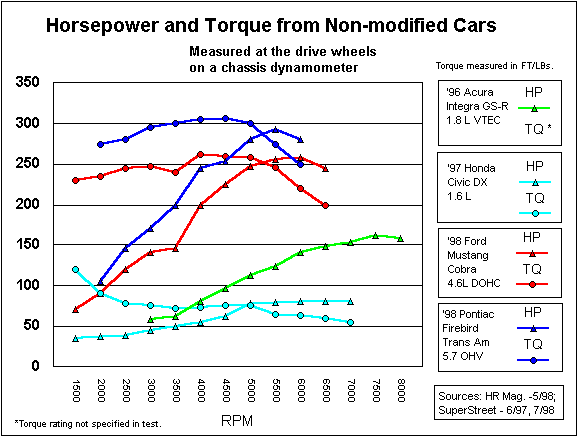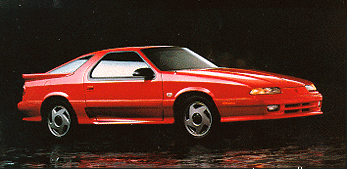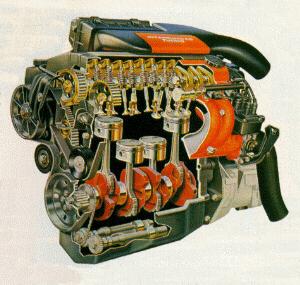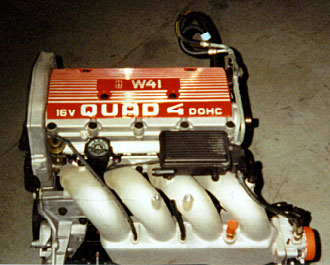"High tech" Honda engine
VS. "Low Tech" American V8
A lot of Honda enthusiasts say it is
easy to build a 500 HP Honda engine. Sure it is if you have enough money!
Buth then with enough money, you could make a lawn tractor outrun a top
fueler.
The April 1998 issue of Hot Rod
magazine featured 2 engine buildup stories: one a "high tech"
turbo Honda engine built by JG Engine Dynamics, and an "old
tech" Buick 455 V8. Hot Rod, unlike most "sport compact
car" magazines, gets into the details of the engines in featured cars
and the costs to build. Both made 500 horsepower, but the Honda
cost almost 3 times what the Buick cost . Basically, they threw away
the bottom end of the Honda, since in stock form the Honda cannot
withstand the pressures of making 500 HP. They basically rebuilt
the block with ductile iron cylinder sleeves and closed the open
block deck by welding in a deck plate.The pistons and rods were replaced
with expensive aftermarket pieces.
The "low tech" Buick used
nearly all stock parts with the exception of ported stock heads, an
aftermarket cam, aluminum intake manifold and headers. The Buick's
short block uses a stock rods,crank, and block. It will make 500
HP using ordinary premium pump gas, while the Honda needs expensive
racing gas to make the full 500 hp.
The Buick engine was installed in a large 3950
lb. Buick GS and ran the quarter mile in 11.59 secs. It would be much
quicker if the engine was put in a lighter car, like a Nova, Skylark, or
Ventura. According to JG Engine Dynamics, their Honda engines
usually run low 11sec. - quarter-miles in a 2500 lb.Civic.
Keep in mind that the Buick 455
is not even a popular engine to modify; parts for Buick engines are more
expensive than more common Chevys. But for the same price as ONE
high-strung, grenade-waiting- to-detonate Honda engine, TWO mild, more
durable "old tech" Buick V8s could be built with money left
over. In fact, you could build the Buick engine and pick up a
fairly nice car to put the Buick engine in for less than the cost of the
Honda engine alone!
So unless you have a rich mommy and
daddy, or don't mind maxing out your credit cards or taking out a 2nd
mortgage, Hondas engines are not great to modify for drag racing if
you want to go fast for a reasonable amount of money
| Make |
Buick 455
home built |
Honda 1.8 VTEC
JG Engine Dynamics
custom built |
| Output |
500 HP |
500 HP
(33 lbs boost) |
| COST |
$3,926(US) |
$10,500(US) |
| Fuel Required |
92 octane pump gas |
118 octane racing gas |
| Block |
Stock Buick,
.038 overbore
cleaned;new core plugs |
Highly modified Honda: welded in
aluminum top block deck
to prevent stock floating cylinder sleeves from breaking;
ductile iron cylinder sleeves replace stock aluminum |
| Pistons |
Cast Aluminum JE .38 over |
Forged Arias |
| Connecting Rods |
stock Buick |
HD Crower aftermarket |
| Rings |
Chrysler 440 |
N/S |
| Head(s) |
Greg Gesler Level 2 ported
Buick |
Honda w/1.35" intake valves
replacing stock 1.29 |
| Crankshaft |
Stock Buick, .010 under |
N/S |
| Camshaft(s) |
Lunati 241-241 "Hemi
Killer" |
Radical JG Engine Dynamics
Custom Grind |
| Induction |
Normally
Aspirated:
Edelbrock Performer Aluminium manifold;
Stock GM Quadrajet 4bbl |
Forced
Induction:
XS Engineering turbocharger;
air to air intercooler; 92 lb/hr injectors; Aftermarket ACCEL DFI
system with General Motors MAP sensor |
| Ignition |
Stock Buick HEI ignition |
controlled by Aftermarket ACCEL
DFI system |
| Exhaust |
1 7/8" TA Performance
Headers |
N/S |
N/S= not specified
|
![]()



